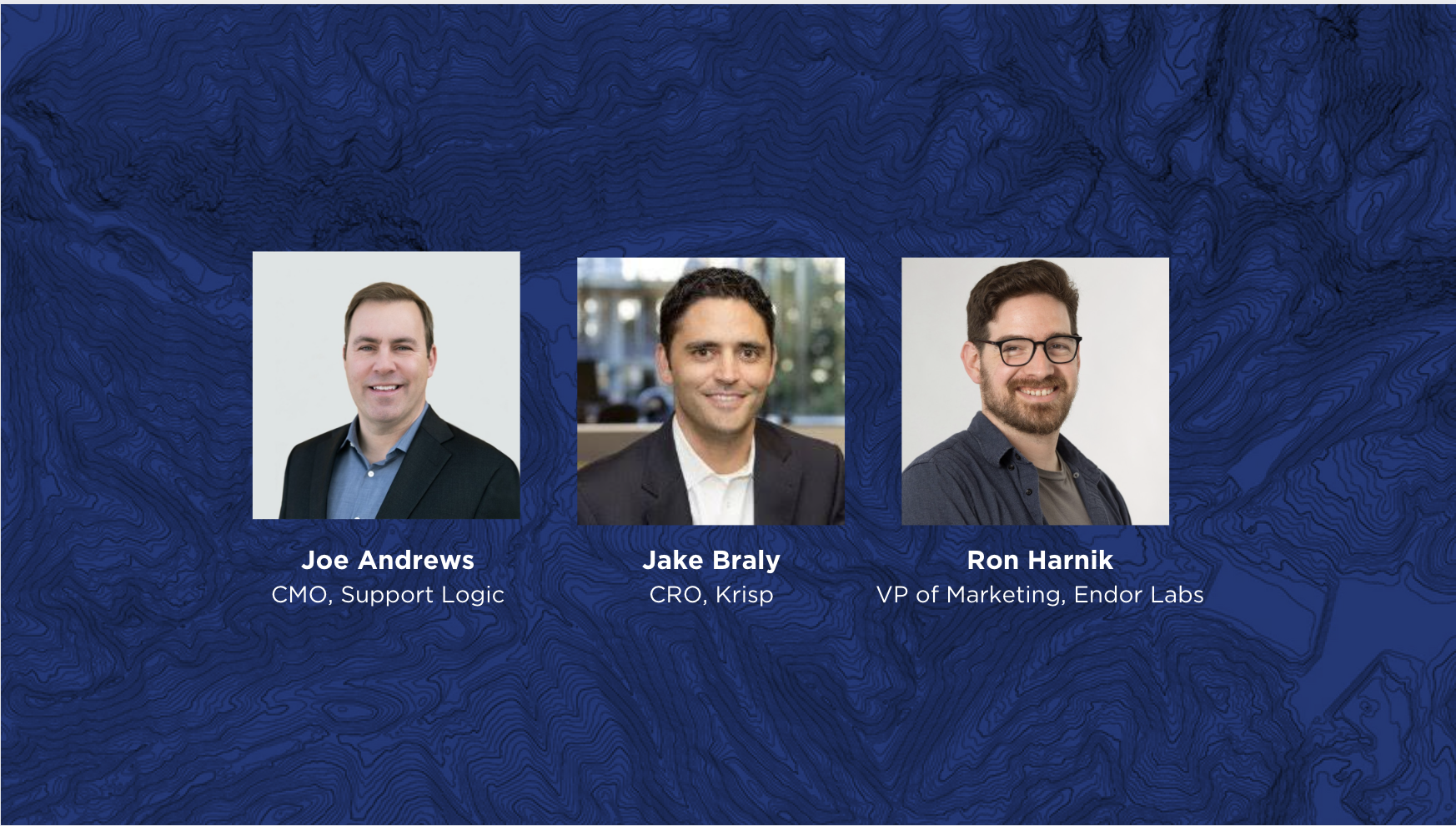Expert Tips for Sourcing and Hiring Key Executives
Panelists: Adam Ward - Founder - Growth by Design; Mark Fernandes - Managing Partner Sierra Ventures; Varun Badhwar - CEO, Endor Labs
Sierra's Executive Recruiting roundtable featured early-stage experts offering advice to founders and early teams on hiring and souring key talent. Adam Ward, Partner at Growth by Design and previous head of executive recruiting at Pinterest, gave tactical insights into how founders should prepare and execute their executive hires. Varun Badhwar, a 2X CEO who sold his startup RedLock to Palo Alto Networks and now CEO and Founder of Endor Labs, shed insights from the founder's perspective on building great high-growth executive teams. Sierra's Managing Partner, Mark Fernandes, rounded out the panel by shedding insights from the boardroom and 20+ years supporting founders in executive searches. Mark is known for being one of the most active early-stage investors in rolling up his sleeves and helping portfolio founders hire key talent. Anne Gherini, Chief Marketing Officer at Sierra Ventures, led the panel discussion.
Here are the top points made about hiring executive talent:
-
Signs for hiring an executive leader: Founders should consider hiring an executive leader when they spend too much time on a specific area, leading to underinvestment in other crucial aspects of the business, such as product development and operations.
-
Timing considerations: It is generally too soon to hire an executive leader during the experimental phases of a startup when the founders are still figuring out their sales, marketing, or engineering strategies. Hiring at this stage can lead to incorrect hires. However, once the startup has figured out its direction and the founders spend excessive time in a particular business area, it signals that they need help in that area.
-
Hiring mistakes and alignment: Founders often make mistakes by not doing the upfront work to appropriately scope the role and align key stakeholders on what they seek in an executive hire. Lack of alignment can lead to extended search times and misaligned expectations.
-
Qualities to look for in an executive: Founders should be secure about their strengths and open about their weaknesses. They should be willing to bring in someone who excels in areas where they may not be as strong. Other qualities to consider include hunger and a desire to prove oneself, as well as cultural fit, chemistry with the team, and emotional intelligence (EQ).
-
Effective interview techniques: Interviews should go beyond basic questions and focus on tunneling, which involves following up with deep, tailored questions based on the candidate's answers. Other evaluation methods include references, work samples, case studies, and assessing cultural fit.
-
Avoiding interviewer bias: Interviewers should be given specific focus areas and make decisions based on their area of expertise. Structured feedback should be collected individually before a group debrief to avoid early interviewers influencing later ones.
-
Red flags when hiring: Lack of preparedness and failure to demonstrate ethics can be red flags. Additionally, founders should consider stage relevance when hiring executives, ensuring candidates have experience in early-stage organizations and are accustomed to the unique challenges and pace.
-
The time commitment for recruiting: Early-stage founders should dedicate a significant amount of their time to recruiting, often around 70% in the first year. Recruiting is essential for selling the vision of the startup, and founders are often the best at conveying that vision.
-
Hiring an executive before an individual contributor: Whether to hire a VP before hiring a manager or other individual contributors depends on the function and the founder's background. The decision should be based on the specific needs and dynamics of the startup.
- Reference checks: The worst reference checks are open-ended. You have to be intentional. In order to get a 360 view you need to ask references (both those provided by the candidate and those you source yourself) very specific questions.
Overall, the interview emphasizes the importance of proper timing, alignment, and assessment techniques when hiring startup executive leaders. It highlights the need for founders to be self-aware and open to bringing in individuals who can complement their skills and drive the company forward.
Subscribe to our news letter to get latest updates and news
Expert Tips for Sourcing and Hiring Key Executives
- Summary
- Transcript
Signs for hiring an executive leader: Founders should consider hiring an executive leader when they spend too much time on a specific area, leading to underinvestment in other crucial aspects of the business, such as product development and operations.
The worst reference checks are open-ended. You have to be intentional. In order to get a 360 view you need to ask references (both those provided by the candidate and those you source yourself) very specific questions.
Hiring mistakes and alignment: Founders often make mistakes by not doing the upfront work to appropriately scope the role and align key stakeholders on what they seek in an executive hire.
Sierra's Executive Recruiting roundtable featured early-stage experts offering advice to founders and early teams on hiring and souring key talent. Adam Ward, Partner at Growth by Design and previous head of executive recruiting at Pinterest, gave tactical insights into how founders should prepare and execute their executive hires. Varun Badhwar, a 2X CEO who sold his startup RedLock to Palo Alto Networks and now CEO and Founder of Endor Labs, shed insights from the founder's perspective on building great high-growth executive teams. Sierra's Managing Partner, Mark Fernandes, rounded out the panel by shedding insights from the boardroom and 20+ years supporting founders in executive searches. Mark is known for being one of the most active early-stage investors in rolling up his sleeves and helping portfolio founders hire key talent. Anne Gherini, Chief Marketing Officer at Sierra Ventures, led the panel discussion.


